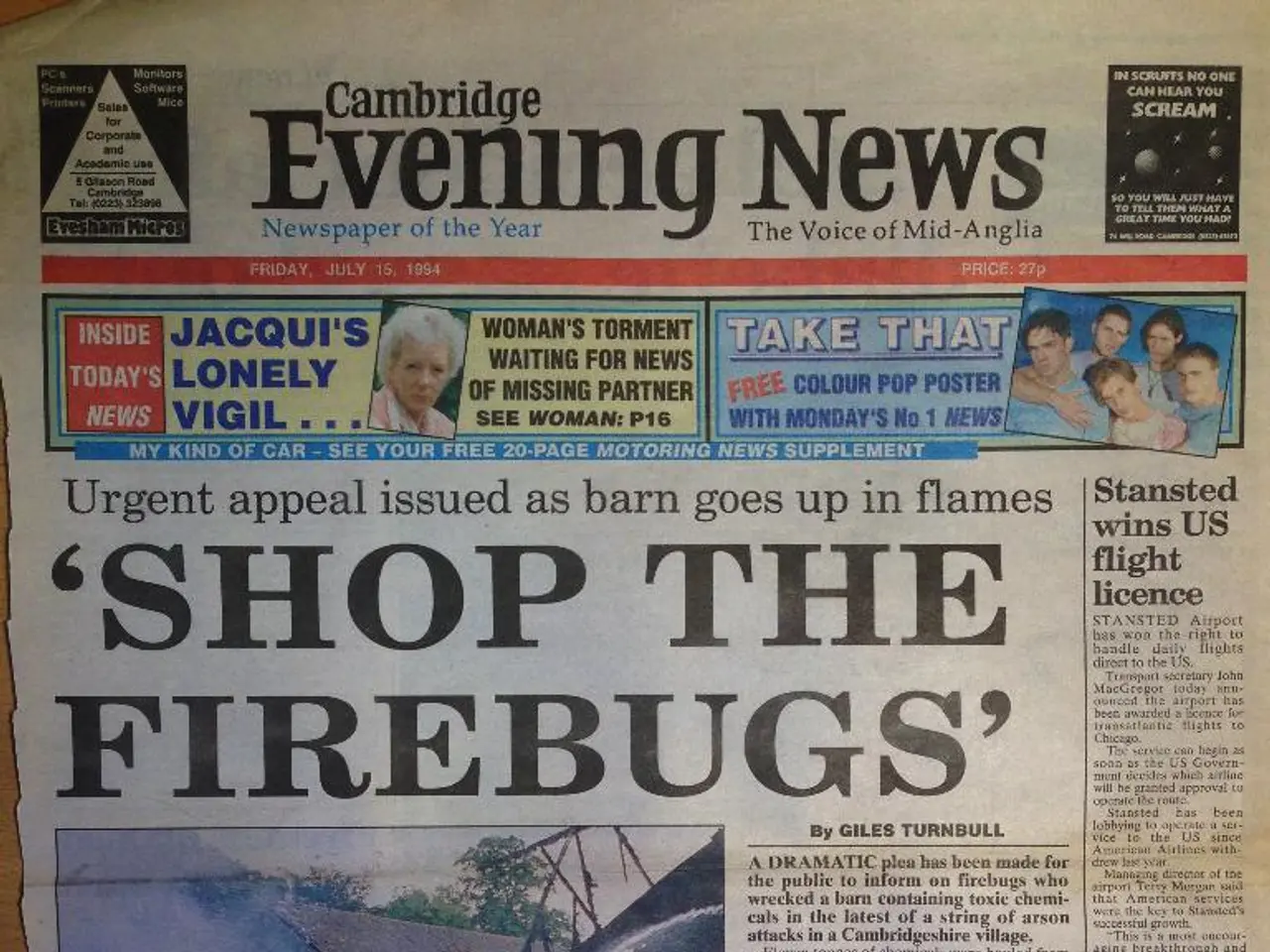Correspondence: Christian and Conservative Radio Outlets Not Experience Victims of Oppression
In a recent statement, Troy A. Miller, President and CEO of the National Religious Broadcasters (NRB), expressed concerns that public broadcasting, including NPR, excludes many voices, particularly those from faith-based and conservative perspectives. However, not everyone agrees with this assessment.
Brian Walker, a resident of Seattle, Washington, finds Miller's claim egregious and without fact or merit. Walker's letter, published in the Reader's Forum Section of a website, argues that the editorial staff of the platform, owned by Future plc, is doing a disservice to its readers by reprinting such statements without providing adequate perspective.
The facts, as they stand, paint a different picture. Out of all the radio stations in the U.S. carrying a Talk Format, only 9%, or about 135 stations, are viewed as "liberal." On the other hand, there are over 1,500 radio stations broadcasting a Conservative Talk format, which is just under 1 in 10 radio stations. Furthermore, there are over 2,400 Christian format stations in the U.S., which is more than 1 in 7 stations.
This suggests that the number of Christian and Conservative stations in the U.S. might not support the claim that public broadcasting operates as a mouthpiece for one political perspective. In fact, there are 916 NPR affiliate stations in the U.S., which is less than 1 in 16 radio stations.
It's important to note that organisations like Adfontesmedia have rated NPR as having minimal partisan bias and meeting high standards of journalism.
Given the current data, it's challenging to assess the accuracy of Miller's claims about how public broadcasting, such as NPR, represents faith-based and conservative viewpoints relative to Christian or conservative talk radio. A more detailed accuracy assessment would require examining specific statements Miller has made on this topic, as well as independent media content analyses comparing NPR’s programming to Christian and conservative talk radio content in terms of ideological and religious representation.
In conclusion, while the debate over representation in public broadcasting continues, the available data does not provide direct evidence to support or refute Miller's claims at this time.
- The disparity in the number of radio stations broadcasting Christian and conservative content, compared to the number of NPR affiliate stations, challenges the assertion that public broadcasting, like NPR, undervalues voices from faith-based and conservative perspectives.
- The widespread reach of conservative talk radio, with over 1,500 stations compared to fewer than 900 NPR affiliates, contradicts the allegation that media platforms, such as social-media and entertainment networks, equally represent faith-based and conservative viewpoints.








